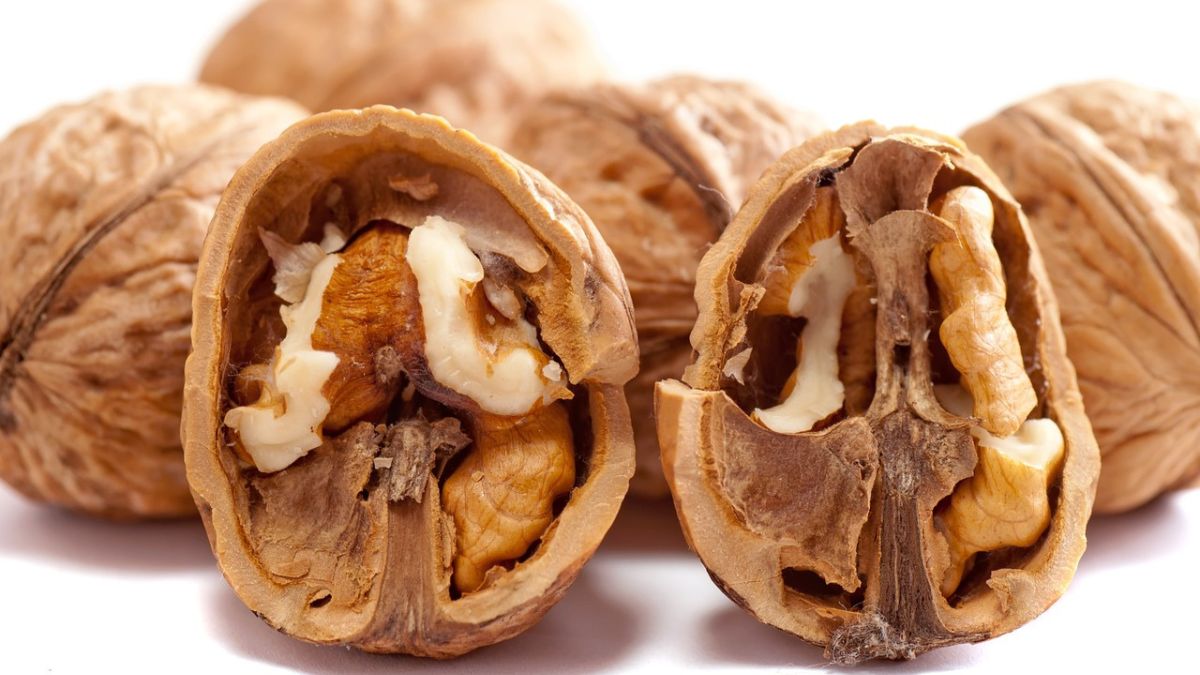Does your breakfast plate have an egg in it? There might be a possibility to replace the egg with a handful of nuts which can reduce the risk of developing cardiovascular disease by up to 17 per cent.
As per a recent review of studies that was published in the UK journal BioMed Central (BMC), Consuming one fewer egg daily and replacing it with 25 to 28 grams of nuts may reduce the risk of heart disease by 17 percent, diabetes by 18 percent, and premature mortality by 15 percent.
Why do Nuts Stand as a Healthy Choice?
Nuts, especially walnuts, contain beneficial monounsaturated and polyunsaturated fats, vitamins, antioxidants, essential minerals, fiber, and protein. Omega-3 fatty acids found in nuts help prevent irregular heart rhythms and blood clots. Additionally, the amino acid Arginine promotes the production of nitric oxide, which aids in relaxing constricted blood vessels, facilitating smoother blood flow.
Dr. Pravin Kahale, Consultant in Cardiology at Kokilaben Dhirubhai Ambani Hospital in Mumbai says, “Nuts, through their ability to increase good cholesterol, alleviate inflammation, moderate blood sugar levels via slow-digesting fiber, promote fat burning, and aid in weight management, effectively mitigate various risk factors associated with heart disease.”
“For instance, a single ounce of almonds contains approximately 15 grams of fat, primarily consisting of 80% monounsaturated, 15% polyunsaturated, and 5% saturated fats. Similarly, walnuts offer around 18.5 grams of fat, predominantly comprising healthy fats,” he further explains.
Notably, a 2021 study showcased that consuming roughly half a cup of walnuts daily over two years modestly decreased levels of low-density lipoprotein (LDL) or ‘bad’ cholesterol while reducing total LDL particles and small LDL particles among healthy, older individuals. “This reduction is crucial given how cholesterol contributes to plaque formation and artery blockage,” adds Dr. Kahale.
Furthermore, when considering dietary choices, substituting nuts for processed meats such as sausage can be advantageous even if eggs are consumed. Replacing cold cuts and meats with nuts (approximately 28 to 50 grams) has been associated with a 27% reduction in cardiovascular risk, according to the review.”
Walnuts for Breakfast: Here’s Why They Make Sense
“Indians tend to have late dinners, and foods like grains and animal protein take longer to digest. Consuming an egg breakfast at 8 am may lead to undigested food remaining in the system, causing an overload on the digestive system. This can elevate blood sugar levels and impact fat metabolism,” explains Dr. Sujatha Ganigi, Non-Interventional Cardiologist at Manipal Hospital in Bengaluru. “In contrast, fruits and nuts are lighter on the digestive system and do not cause overloading. Additionally, soaked nuts are easier to absorb,” she adds.
Furthermore, nuts serve as an excellent snack option, especially for mid-meal cravings. Dr. Chandan Saurav Mahapatro, Interventional Cardiologist at Manipal Hospital, Bengaluru, recommends consuming approximately 20-30 grams of chestnuts, almonds, walnuts, and avocados. “Chestnuts contain antioxidants such as gallic and ellagic acid, which studies have shown to reduce oxidative stress—a condition linked to an increased risk of strokes and heart disease,” mentions Dr. Mahapatro. “In fact, I prefer recommending nuts to my patients over chicken stew and other dietary supplements, particularly for individuals with high blood pressure and high blood sugar. Nuts are more easily acceptable and lighter, allowing for consumption in small amounts throughout the day—a flexibility not afforded by eggs,” he adds.
Do Walnut Eaters Have Healthier Hearts?
Numerous significant cohort studies, such as the Adventist Study, the Iowa Women’s Health Study, the Nurses’ Health Study, and the Physicians’ Health Study, have consistently revealed a reduced risk—ranging from 30 percent to 50 percent—for myocardial infarction, sudden cardiac death, or cardiovascular disease among individuals who consume nuts multiple times per week.

